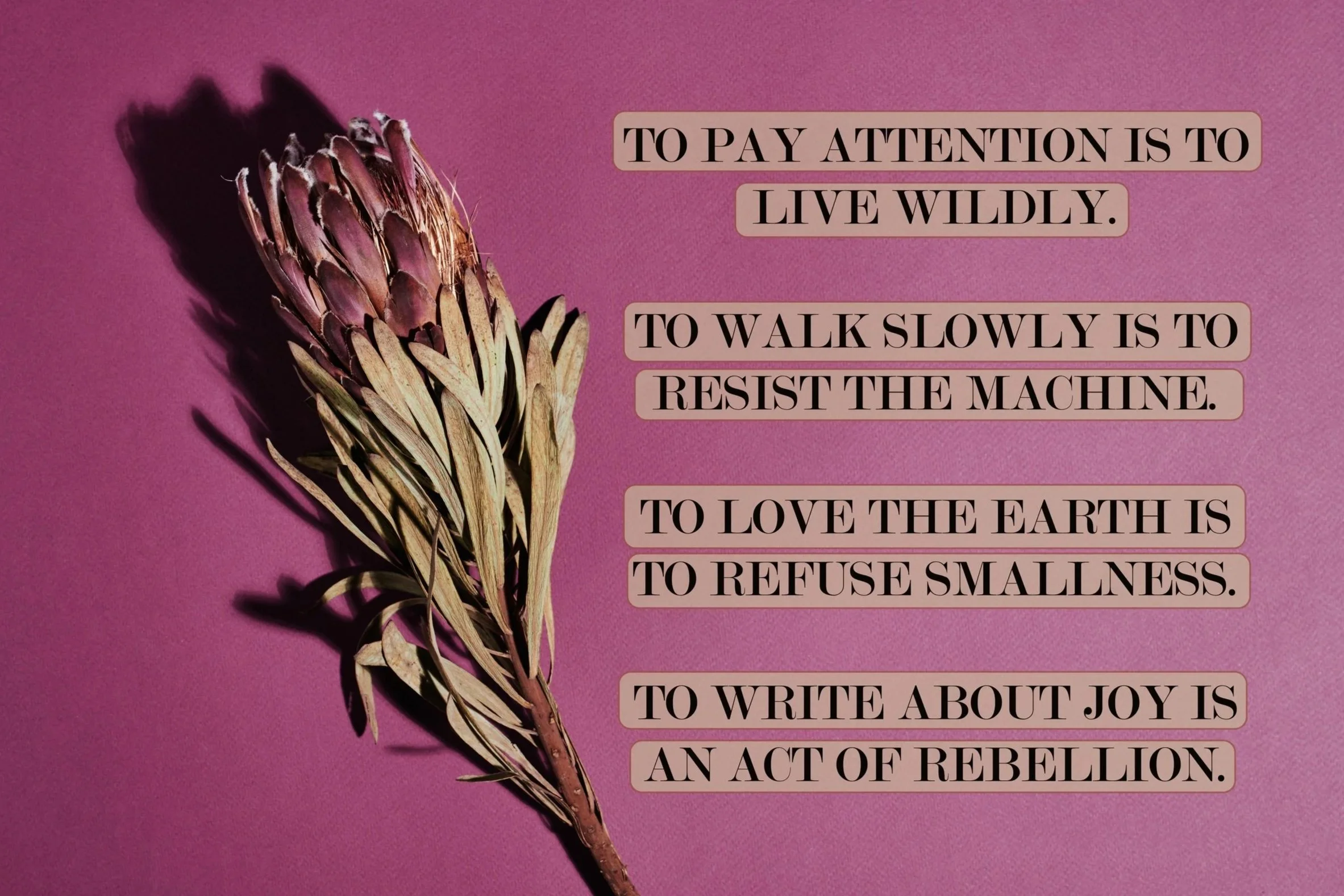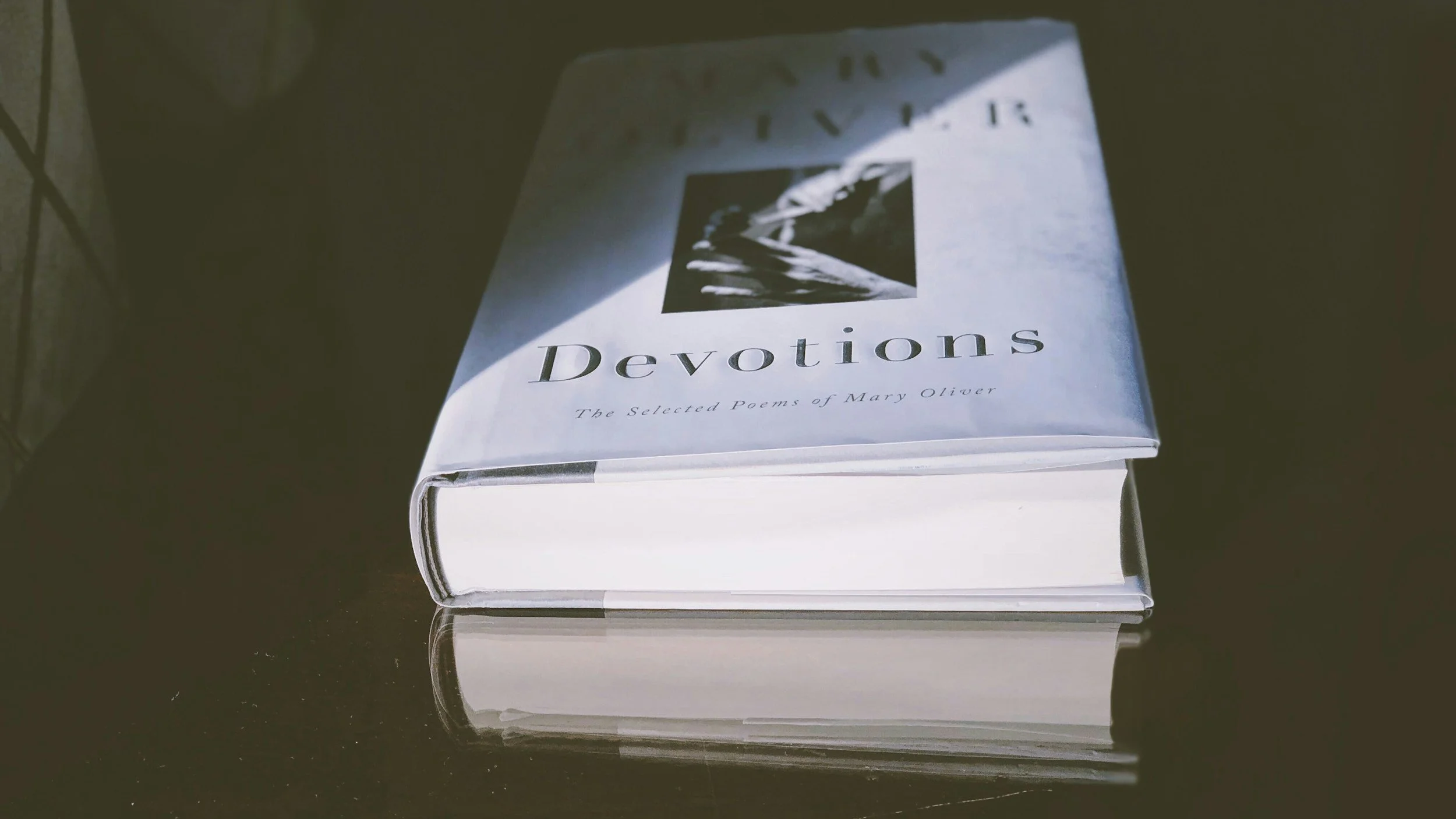October: The Sacred Pause
If June was the fullness of ripening fruit, July the wildfire heart and August the lingering glow after the blaze then September was the doorway—the hush before the next unfolding. A threshold month. A place where you could hear your own breath again.
And now, October arrives.
October is not a sprint, nor is it yet the rush of the holiday tide. October is the pause between exhale and inhale, the silence before the music begins again. It’s the taste of cool air at dawn, the weight of blankets at night, the first shadows that remind us how close we live to mystery.
We often think of fall as a harvest—a culmination. But October is not just about gathering what we’ve sown. It’s also about listening. About watching the trees strip themselves bare and learning, once again, how beautiful it is to let go.
Where summer asked us to expand, stretch, blaze and bloom, October invites contraction. A curling inward. A turning toward roots. This is not the death of anything but the composting of what has been—the transformation of old heat into fertile ground.
It is easy to rush past this pause, to begin already thinking of holidays and plans, to chase distraction instead of stillness. But October is asking something else of us. It is asking us to notice the slowness. To hold space for what we learned in the burning months. To acknowledge who we are now, in this in-between—no longer summer’s fever dream, not yet winter’s stark silence.
This is the season of thresholds, and thresholds are sacred.
Stand here a moment longer.
Feel the pause.
Listen for the wisdom inside it.
Ways to Honor Your October Self
Create a Threshold Ritual:
Light a candle at dusk and sit in silence for a few minutes. Ask yourself: what am I releasing? What am I becoming?
Gather Autumn Offerings:
Bring pumpkins, gourds, pinecones, or fallen leaves into your home. Arrange them on a table as a reminder that beauty lives in transition.
Practice Letting Go:
Write down what you no longer wish to carry—habits, expectations, even old dreams—and burn or bury the paper. Honor release as sacred.
Rest Like the Earth:
As the days shorten, choose rest without guilt. Take a nap. Sleep longer. Read by lamplight. Let your body mirror the season.
Walk Among the Trees:
Spend time under trees that are shedding their leaves. Watch them loosen their grip and remember that letting go is also growth.
Nourishment for Your Wild Heart
Herbs & Plants
Mugwort — for dreamwork and intuition
Rose hips — immune support, rich with vitamin C
Sage — for clearing and grounding
Chamomile — for gentle rest and release
Seasonal Foods
Pumpkins — abundance, sweetness, rootedness
Cranberries — sharp, cleansing, protective
Kale & dark greens — fortifying the blood
Walnuts — wisdom, brain food, earth’s little gifts
Energetic Allies
Elderberry — for immunity as the air cools
Ashwagandha — strength and stability in transition
Magnesium — soothing for body and mind
Bone broth — deep nourishment, warming from within
What does the world mean to you if you can’t trust it to go on shining when you’re not there?
Look, I want to love this world as thought it’s the last chance I’m ever going to get to be alive and know it.
-Mary Oliver
Walking into October with Mary Oliver
Mary Oliver was, in many ways, the archetype of the wild woman. She lived most of her life close to the earth, walking the marshes and forests of Provincetown with her notebook tucked under her arm. She wasn’t chasing literary parties or academic accolades—she was chasing the rustle of herons, the silence of moss, the way the light cut across a pond at dusk.
In interviews, she often described how she’d wake before dawn, put a few biscuits in her pocket, and wander the woods until she felt the world open. Her poems were born there—under sycamores, beside turtles sunning themselves with her face tilted toward a hawk circling overhead. She once said that she learned more from trees than she ever did from books and that her “office” was simply the open field.
She lived in a small, humble house with her partner Molly Malone Cook, surrounded by stacks of books and dogs who padded in and out like muses. It wasn’t about grandeur or fame for her—it was about devotion. To words. To attention. To the holiness of everyday life.
If we call her a wild woman, it’s not because she was unruly in the loud, fiery way—her wildness was quieter, like water carving stone over centuries. She was wild because she refused to separate art from living. Because she chose long walks over long meetings, the sky over the ceiling, dogs over pretense. Because she made a life out of being astonished.
A “wild woman” teaching from Mary Oliver’s life:
To pay attention is to live wildly.
To walk slowly is to resist the machine.
To love the earth is to refuse smallness.
To write about joy is an act of rebellion.


